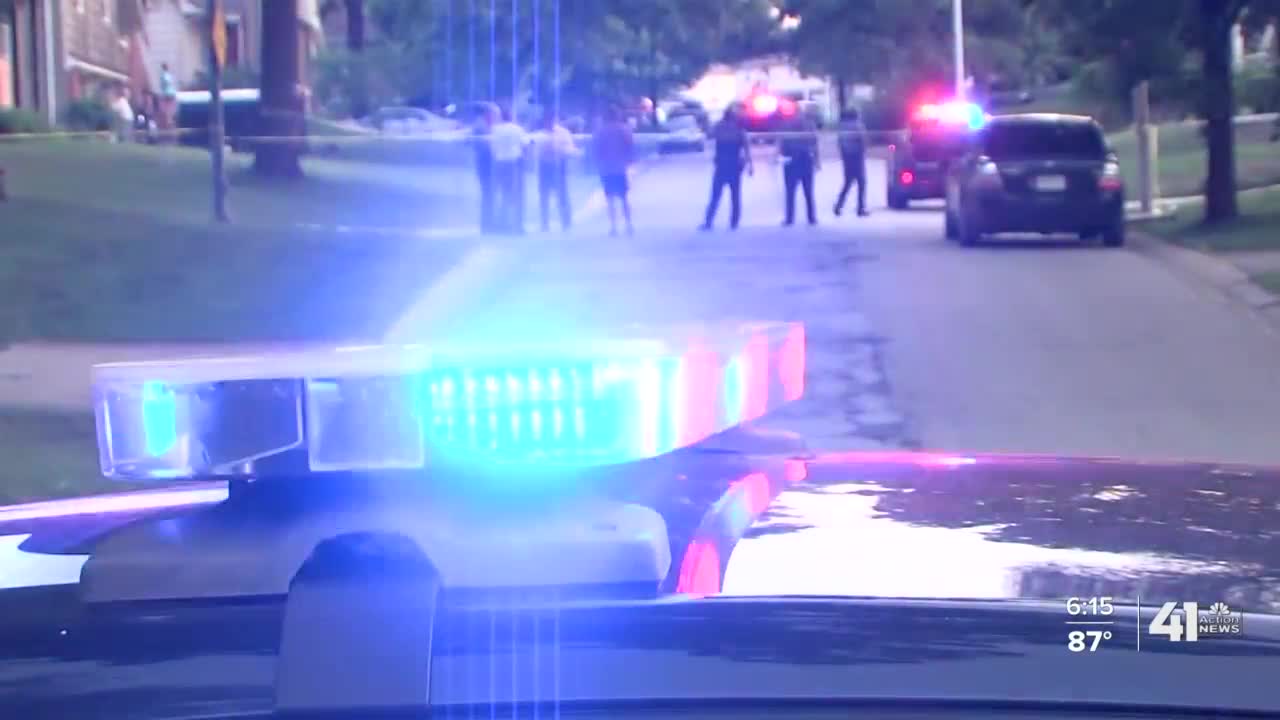KANSAS CITY, Mo. — Following months of research, the Greater Kansas City Chamber of Commerce and the Civic Council released three recommendations related to policing practices from the the Kansas City, Missouri, Police Department.
The research included a series of 35 meetings, with 14 listening sessions with community groups, law enforcement, local prosecutors, national law enforcement and police oversight organizations, as well as members of the KCPD Board of Police Commissioners.
The group initiated the study as the city continues to battle violent crime, which included breaking the homicide record in 2020, and tension between protesters and police at protests last year in response to George Floyd's murder, among other factors.
The recommendations center around three points: How investigations into KCPD personnel are conducted; the ongoing legal battle between Kansas City, Missouri, and the Board of Police Commissioners; and working to add diverse voices to the BOPC upon a vacant seat.
One concern is that high-level employees in the department, including the chief of police, have access to complaints against department members early in the process.
As a result, according to the groups, "the police chief is given an opportunity to disagree with [Office of Community Complaints] investigative findings prior to presentation to the BOPC."
The group recommended restructuring the review process to "employ industry best-practices," emphasize transparency, be independent of KCPD and report directly to the BOPC.
Gwen Grant, president of the Urban League of Greater Kansas City, said the recommendations are a step in the right direction. Her group has been calling for a complete overhaul of the OCC.
"It is a process that has been ineffective and geared toward protecting the interests of the rank of the police department and not the interest of the community," Grant said.
In May, Kansas City, Missouri, Mayor Quinton Lucas introduced two ordinances changing KCPD funding, which were passed by city council members the same day.
The ordinances shifted a portion of KCPD funding into a Community Services and Prevention Fund.
In response, the BOPC filed suit, looking to overturn the ordinances. There has been back-and-forth dialogue among city leaders who disagree with the ordinance.
The chamber and civic council said the ongoing litigation "wastes valuable time and energy that could better be used to shore up police resources and improve processes."
They agreed the city should have control of KCPD funding, but said conversation between city leaders and the BOPC is needed.
"The KCMO City Council, BOPC and KCPD must immediately initiate open-minded and inclusive dialogue," the groups stated in a news release. "That includes additional voices from the community, aimed at resolution as a best next step for improved KCMO public safety."
Grant said she's ambivalent about the second recommendation.
"The Board of Police Commissioners has not demonstrated that they have any real or authentic interest in collaboration," Grant said.
Finally, the group recommended that when a BOPC member vacates their seat, the commission should consider replacing them with "members who reflect the racial, ethnic, and geographic diversity of the community KCPD serves."
Grant said she would prefer local control, but absent of it she agreed the recommendation is needed to create trust, accountability and transparency between KCPD and the community.
"We need strong Black and brown leaders on that board, and we've not had a governor to make appointments at that level in quite some time, if at all," Grant said.




